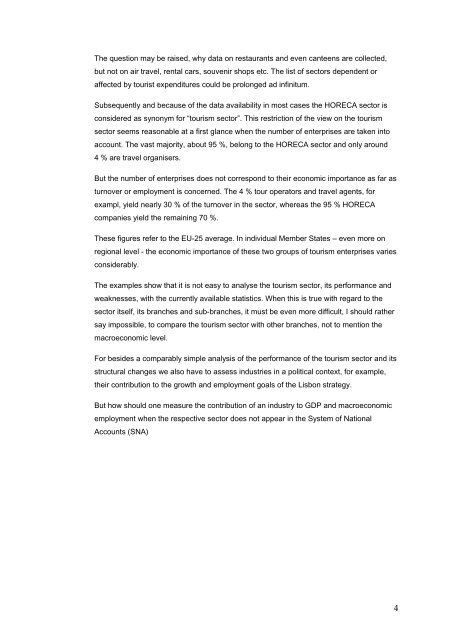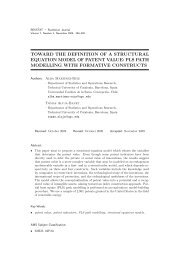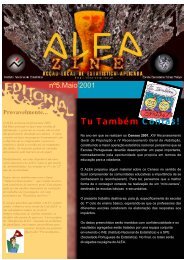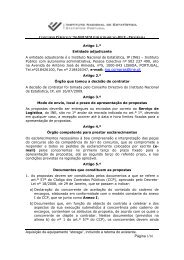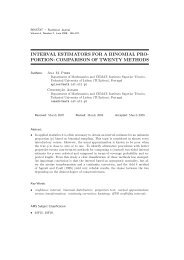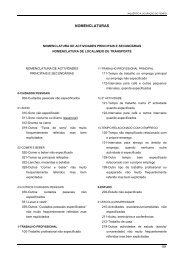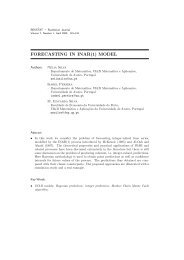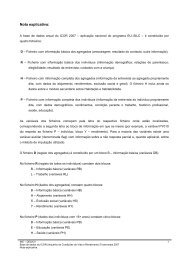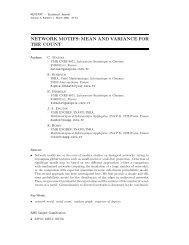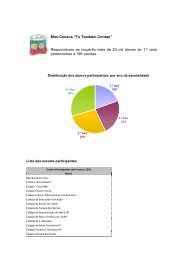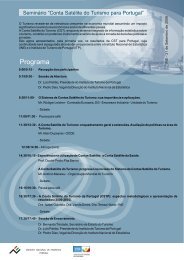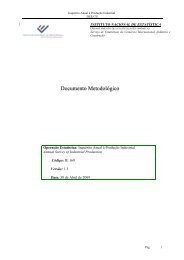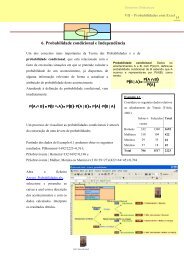1 Seminar Tourism Satellite Accounts for Portugal
1 Seminar Tourism Satellite Accounts for Portugal
1 Seminar Tourism Satellite Accounts for Portugal
You also want an ePaper? Increase the reach of your titles
YUMPU automatically turns print PDFs into web optimized ePapers that Google loves.
The question may be raised, why data on restaurants and even canteens are collected,<br />
but not on air travel, rental cars, souvenir shops etc. The list of sectors dependent or<br />
affected by tourist expenditures could be prolonged ad infinitum.<br />
Subsequently and because of the data availability in most cases the HORECA sector is<br />
considered as synonym <strong>for</strong> “tourism sector”. This restriction of the view on the tourism<br />
sector seems reasonable at a first glance when the number of enterprises are taken into<br />
account. The vast majority, about 95 %, belong to the HORECA sector and only around<br />
4 % are travel organisers.<br />
But the number of enterprises does not correspond to their economic importance as far as<br />
turnover or employment is concerned. The 4 % tour operators and travel agents, <strong>for</strong><br />
exampl, yield nearly 30 % of the turnover in the sector, whereas the 95 % HORECA<br />
companies yield the remaining 70 %.<br />
These figures refer to the EU-25 average. In individual Member States – even more on<br />
regional level - the economic importance of these two groups of tourism enterprises varies<br />
considerably.<br />
The examples show that it is not easy to analyse the tourism sector, its per<strong>for</strong>mance and<br />
weaknesses, with the currently available statistics. When this is true with regard to the<br />
sector itself, its branches and sub-branches, it must be even more difficult, I should rather<br />
say impossible, to compare the tourism sector with other branches, not to mention the<br />
macroeconomic level.<br />
For besides a comparably simple analysis of the per<strong>for</strong>mance of the tourism sector and its<br />
structural changes we also have to assess industries in a political context, <strong>for</strong> example,<br />
their contribution to the growth and employment goals of the Lisbon strategy.<br />
But how should one measure the contribution of an industry to GDP and macroeconomic<br />
employment when the respective sector does not appear in the System of National<br />
<strong>Accounts</strong> (SNA)<br />
4


